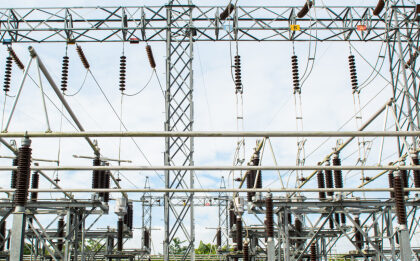By Charles H. DeBow
The Louisiana Public Service Commission, the state agency that oversees electric utilities such as Entergy, Southwestern Electric Power Company (SWEPCO), and Cleco Power, has publicly discussed deregulating the state’s electric services. This summer, the regulatory agency will begin Phase One of this process and is seeking comments from the public.
Deregulation would mean that rather than limiting which companies can operate in the state and closely overseeing their operations, the state would let additional power companies sell electricity to businesses and residents.
As leader of an organization speaking out for the interests of black business communities in Louisiana and around the nation, my inclination is to be supportive of deregulation. After all, competition in a free market economy typically results in good outcomes for customers. Competition drives innovation, keeps prices low, and motivates better service.
But a closer examination of energy deregulation reveals that it does not create real competition for customers; instead, it results in a variety of bad options and more expensive electricity. For the many small black-owned and operated businesses in Louisiana, this would mean more expensive monthly electric bills.
To my mind, the most convincing piece of evidence for the business community that deregulation in Louisiana would be a mistake is a recent Wall Street Journal article that found that customers in the United States using so-called competitive suppliers in deregulated states paid $19.2 billion more for electricity between 2010 and 2019 than if they had stuck with their regulated utilities.
My opposition to deregulation is not theoretical but comes from experience. Washington, D.C., where my organization is located, has implemented deregulation. For most D.C. residents, hardly a week goes by without getting a letter from a competitive energy supplier urging us to switch to clean energy for a few dollars more. But, according to a recent filing with the Federal Trade Commission, these claims are nothing more than “greenwashing” – that is, misleading promises about environmental benefits. Hoping for clean energy, D.C. residents get snookered instead.
D.C.’s neighbor to the north, Maryland, implemented deregulation in 1999, with the promise that competition would bring lower rates and better services. But that has not proved to be the case. Data from a prominent ratepayer-advocacy organization in Maryland found that in 2021, families that signed up with competitive suppliers often paid hundreds of dollars more for electricity than if they had purchased electricity from the local power company.
Deregulation supporters also have suggested allowing only the states’ largest industrial customers to participate in an open market. These advocates say that this would protect ratepayers – both individuals and small- and medium-sized businesses – from the risks associated with competitive supply. But this, too, is a false promise.
Louisiana’s largest industrial customers account for about half of all energy use in the state. Implementing deregulation to let these corporations secure power on the energy markets would allow them to hire sophisticated energy traders who would corner the market on the cheapest power, leaving average customers paying for the most expensive energy. Again, this would mean higher power bills for most people in Louisiana, while allowing only the largest industrial customers to reduce their electricity costs.
In the black community, where many families are supported by small businesses, paying a few hundred dollars more a year for power could cause real hardship. I don’t see how anyone who puts a priority on protecting ratepayers and small businesses could be in favor of energy deregulation.
If you’re business-minded, read the WSJ article about the impacts of deregulation and ask yourself if paying more for electricity is a good idea. In Louisiana, a state prone to hurricanes, every extra energy dollar should go toward better maintaining the power grid so that homes and companies can recover more quickly from storms. Wasting money on the false promise of deregulation is bad business.
Charles H. DeBow is the president and CEO of the National Black Chamber of Commerce.
Originally published by RealClearEnergy. Republished with permission.
To read more about energy costs, click here and here.
To read more about Louisiana energy, click here.
